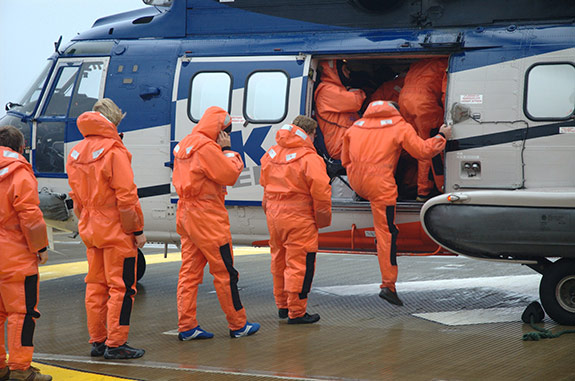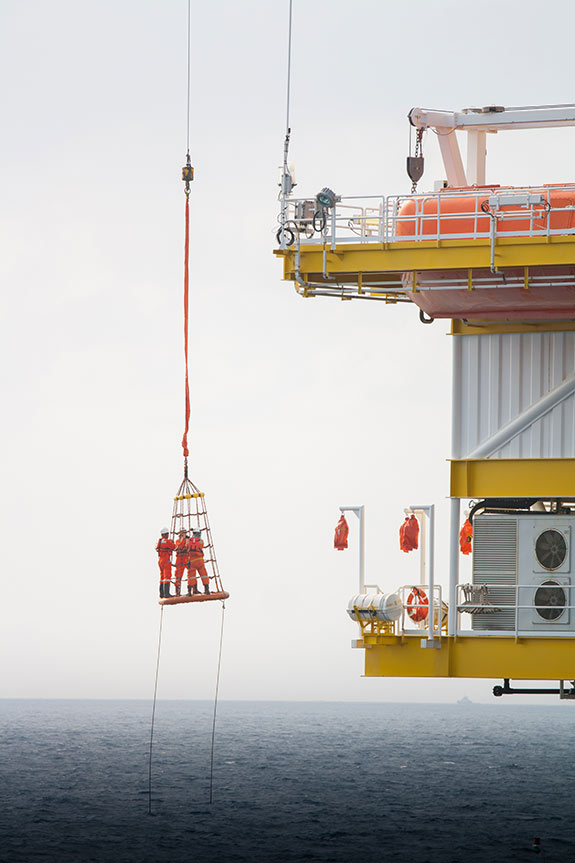Keeping track from point A to B via Z
Published by David Bizley,
Senior Editor
Oilfield Technology,
Paul East, Wings Travel Management, UK, reviews the logistical challenges facing a global oil and gas industry.
Consumption for oil and gas has doubled since 1973 and is likely to rise to 180 million by 2030. It accounts for more than half of the world’s energy needs globally and is one sector of business travel that cannot be replaced with video conferencing. From some of the largest operators in the oil world to smaller service support industries and from Managing Directors to geologists, diving teams and catering staff, everyone plays a vital role in keeping this exceptionally fast paced mobile workforce moving.
Complex travel arrangements
A company such as BP has been estimated by industry sources to spend more than £100 million a year on worldwide business travel, while other major players are believed to have similar sized travel budgets. Industry figures suggest a broad 30 - 70% split of corporate travellers between white-collar workers and those involved on rigs and platforms worldwide, including engineers and technicians, plus their support crews. Multi-sector itineraries with tight deadlines and frequent booking changes are the norm, with urgent visa requests requiring agents to deliver documents to clients at the airport on a regular basis. It is a business that never sleeps.
Understanding specific jobs helps to accurately plan travel arrangements and anticipate needs; there are 15 different disciplines within crew staff alone, so the travel management staff must have in depth training on how the industry works. Precision timing is essential as thousands of crew rotate, generally spending 28 days on platforms or vessels, either ready to start work or taking a well-earned rest.
Multi-sector itineraries will almost certainly have complex routings, e.g. Spokane to Pemba or Teesside to Ouagadougou, and fare construction, requiring a vast knowledge of geography, alternative airports, and global ports and harbours such as Rio de Janeiro, Port Harcourt or Singapore. There are new improvements for crew flying to the Falkland Islands, with an option to fly via Chile or RAF Brize Norton.

Quick and efficient turnarounds are vital.
Flexibility is key; even the best-planned arrangements may change if weather conditions suddenly deteriorate. Round the clock communication is essential and everyone is on standby. The challenge comes when the helicopters are grounded and hotel accommodation becomes scarce. Having a local team available 24/7 to handle last minute changes is essential and time/cost-effective.
Quick and efficient turnarounds may include managing logistics from last minute visas to excess baggage for a crew rotation out of Angola or Rio de Janeiro, or for a team in Aberdeen to join a rig or vessel. With an increasingly international workforce, that could result in booking tickets to 50 different cities. However, there are specially negotiated airline rates designed for the oil, gas and marine industries which reflect the needs of the travellers and offer better value than a supposedly cheap online fare.
One of the key new destinations is Macae, the rapidly growing centre of the Brazilian offshore petroleum industry, resulting in workers flying in from all over the country. The discovery of shale gas in North America has created more than 600 000 direct and indirect jobs and by 2015, that number is expected to exceed 850 000 – most of whom have to move to remote sites regularly for work, from North Dakota to southern Texas.
Safety and security
In Africa airline safety is paramount and it is not uncommon for travellers to go from West Africa to Central or East Africa to come back to another West African country, all to ensure they are using safe carriers. Logistics become very important and, although improving, the frequency of service between points can greatly vary. Nigeria is a challenging market with significant entry barriers such as the Billing Settlement Plan (BSP) not accepting credit cards, prohibitive bonding requirements, bi-monthly BSP remittance cycles and high operating costs. It is vital to have an office on the ground so that clients in Nigeria gain from local invoicing and payment solutions, as well as local content compliance. The latter is especially significant for oil and gas companies because many of the countries in which they operate mandate a percentage of local manpower usage to help develop skills and transfer knowledge to the local workforce. This has become part of most oil and gas companies’ corporate social responsibility initiatives, ensuring they are helping to build local capacity in support of long-term development in emerging market sectors.
The oil and gas sector was tracking its business travellers first and more extensively than any other sector; safety and security is paramount in this business. New technology, such as Wings’ GoData, includes real-time traveller tracking and travel updates that keep both the traveller and travel co-ordinator up to date on schedule changes, but also gives a graphical showing of where their travellers are in the world.
In future versions the product will have the ability to link with GPRS on smartphones, as well as the ability for the travel co-ordinators to send a controlled message to their passengers to confirm they are okay and do not need assistance.
Email communication often works best because phone links can be problematic in certain regions, this allows the crew manifest to be updated 24/7 with the inevitable changes. In addition many companies have their own security departments to protect their people and assets. On offshore platforms, employees are not permitted to carry mobile phones – an enforcement that can make communication with travellers difficult.

Flexibility is important if the weather deteriorates.
Managing risk
One leading oil company has a security policy for employees who are visiting ‘high risk’ destinations; the itinerary is first sent to their travel safety team, who will then ensure the individual has all the correct paperwork, insurance etc., and only then will a travel authorisation number be issued to permit ticketing.
All employers owe a duty of care to staff and this is heightened when employees are visiting often volatile emerging markets. In the light of recent terrorist attacks, political events and tragic accidents such as Piper Alpha it has become increasingly important. Whilst the larger oil companies employ security firms and carefully assess risk, a travel management company provides safeguards such as valuable updates of health and inoculations, particularly pertinent at present with fears of the spread of Ebola, as well as being able to track travellers in case of an emergency and keep people updated on local situations.
Managing risk within the industry and ensuring duty of care, were the major topics on the agenda during the Global Business Travel Association’s 2013 Oil, Gas and Marine Travel Symposium. A senior vice-president of a global health, safety and security company highlighted four major elements to duty of care: managing the safety and wellbeing of employees; managing and assessing risks to the company’s business; identifying risks and reducing them as much “as reasonably practical”; and complying with laws and regulations.
Major areas of concern for oil and gas companies include health, including diseases such as malaria and the lack of adequate healthcare facilities; the safety of transport and hotels; security threats, such as potential terrorist attacks, kidnapping and civil unrest; and, finally, environmental events including earthquakes, tsunamis, or ash clouds grounding aircraft. Travel management companies work closely with travel security specialists, who put together evacuation plans.

Safety is the number one priority.
The 2010 Ash Cloud in Iceland meant having to find a way of getting deepsea divers to Nigeria, whilst the Arab Spring in 2011 required getting a team out of Egypt, whilst monitoring credible security alerts. Both required tenacity, local contacts, 24-hour assistance and good communication.
Confidentiality is paramount in the industry, not only for the traveller safety aspect but also for exploration. One major oil company splits the travel reporting for certain departments to ensure confidentiality is controlled internally as well as externally.
Technology has been a huge help for travellers with a host of tailor made Apps that can monitor and analyse spending budgets, helping companies to cut costs; store personal information to make the whole process more efficient and less stressful or simply to get more time at home by checking in online and monitoring up to date travel details.
Conclusion
The current rapid decline in the cost of a barrel of oil is at present reducing the demand for overseas oil. This is causing producers to pull back on some of their production, which, in turn, is having an adverse effect on service providers, creating a contraction in the market as companies lay off part of their workforce. This trickles down to the travel management companies who then have less demand. It is a cyclical event and will eventually recover but, for now, everyone is tightening their belts and holding on for a rough ride.
Adapted for the web by David Bizley
Read the article online at: https://www.oilfieldtechnology.com/special-reports/12052015/keeping-track-from-point-a-to-b-via-z/
You might also like
McDermott awarded offshore contract by Brazil's BRAVA Energia
Under the contract scope, McDermott will execute the transportation and installation of flexible pipelines, umbilicals and associated subsea equipment for two new wells at the Papa-Terra field and two new wells for the Atlanta Phase 2 development.

